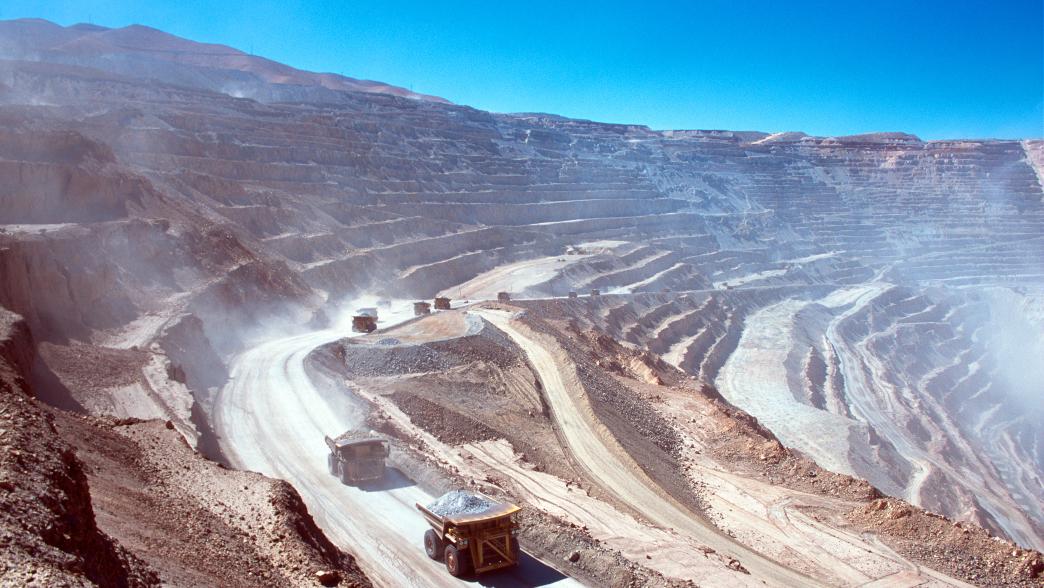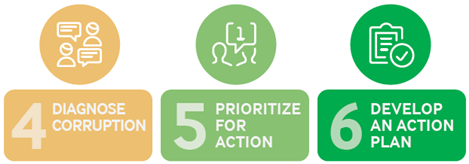
A New Tool in the Fight Against Corruption in the Extractive Industries
Perennial headlines leave little doubt about the prevalence and severity of extractive sector corruption. We’ve learned that commodity traders and supplier companies have bribed officials to snap up lucrative deals. The children of presidents have used national oil companies to enrich themselves and their friends. Corrupt individuals are cashing in on rising global demand for critical minerals.
It’s therefore no secret that corruption is one of the greatest obstacles to the accountable and sustainable management of natural resources. It can undermine the efforts of resource-rich countries to reduce poverty, diversify their economies, achieve democratic governance and address the climate crisis. Corruption’s destabilizing impacts are global too, with foreign actors enabling corruption schemes and moving illicit funds around the world.
For actors who want to prevent corruption and its damaging effects, juicy news stories highlight the problem, but don’t often point to a clear way forward. The sector is complex, technical and opaque in nature. Corruption’s forms vary from country to country, and they can crop up all along the extractive industries decision chain. Powerful figures are often implicated, making anticorruption a very sensitive issue to discuss. Effective solutions often depend on action by multiple stakeholders, including political leaders, civil society actors and private sector executives; that kind of coordinated action can be difficult to orchestrate. In the face of this complexity and sensitivity, anticorruption actors struggle to find a starting point.
That’s where NRGI’s new tool can help.
Via the tool’s six-step process, anticorruption actors identify and understand the most concerning forms of corruption in their countries’ extractive sector through a participatory research process. Based on this analysis, they then develop an action plan tailored to the corruption risks and anticorruption opportunities that define their current context.
The NRGI tool has a few defining hallmarks. It is highly adaptable, with users choosing which parts of the sector—such as licensing, revenue collection or state-owned enterprises—to focus their analysis and action-planning on. The tool’s research guides reflect the specificities of the extractive sector, drawing on NRGI’s sector expertise and its analysis of over one hundred oil, gas or mining corruption cases.
When identifying common corruption forms across the sector, we conceive of corruption broadly and include systemic forms of corruption such as state capture as well as the role of corruption’s foreign enablers.
Finally, the tool prioritizes multistakeholder participation and action planning so that the findings translate into real-world change.
Country-specific multi-stakeholder groups of the Extractive Industries Transparency Initiative (EITI) will be the tool’s initial users. In 2019, the EITI identified addressing corruption as one of its top priorities and we hope that this tool can contribute toward realizing that ambition. EITI stakeholders in Mongolia are now completing a pilot of the tool, a diagnostic that delved into the corruption risks found in mining operations, including the country’s regulatory and procurement systems.
But the tool is not EITI-specific. It’s a public resource and we encourage anticorruption agencies, civil society groups, international aid donors and others to use it too.
We launched this project in April 2020 with support from Deutsche Gesellschaft für Internationale Zusammenarbeit (GIZ). To inform the tool’s design, we reviewed 17 existing assessment tools, consulted with a range of experts, and organized several rounds of peer review. We’ve benefited from generous contributions from a range of experts and practitioners and are especially grateful for our collaboration with the EITI and Transparency International’s Accountable Mining Program.
In the coming months, we will add additional modules on the energy transition, artisanal mining and other topics, and make further improvements based on user experiences in Mongolia and additional countries.
We are excited to launch the first version of the tool, and eager to partner with others to deploy it widely. We encourage anyone interested in finding out more to contact NRGI senior governance officer Matthieu Salomon ([email protected]).




